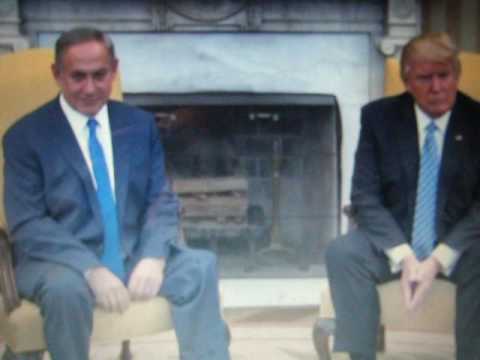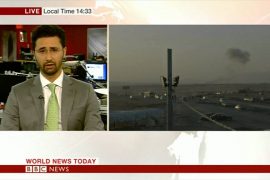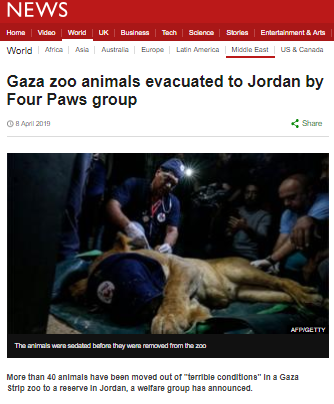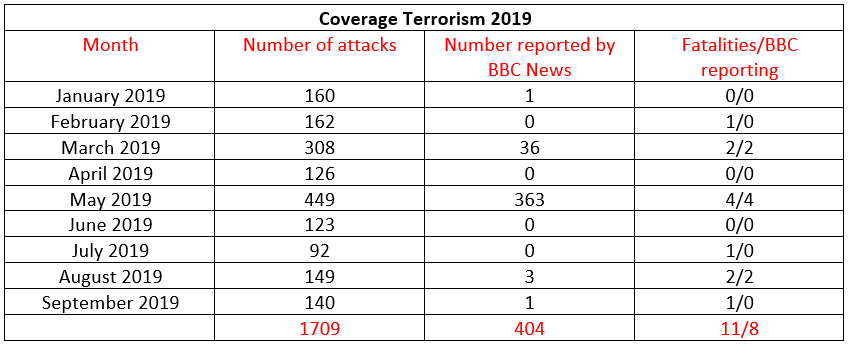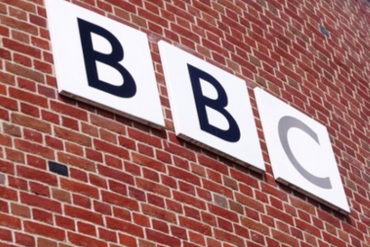h/t RM
When Jeremy Bowen was appointed to the post of Middle East editor in 2005, that role was described as follows:
“The challenge for our daily news coverage is to provide an appropriate balance between the reporting of a ‘spot news’ event and the analysis that might help set it in its context.
This challenge is particularly acute on the television news bulletins, where space is at a premium, and because the context is often disputed by the two sides in the conflict. To add more analysis to our output, our strategy is to support the coverage of our bureau correspondents with a Middle East editor.
Jeremy Bowen’s new role is, effectively, to take a bird’s eye view of developments in the Middle East, providing analysis that might make a complex story more comprehensive or comprehensible for the audience, without the constraints of acting as a daily news correspondent. His remit is not just to add an extra layer of analysis to our reporting, but also to find stories away from the main agenda.”
On February 15th a report by Jeremy Bowen concerning that day’s meeting between the US president and the Israeli prime minister was broadcast on BBC One’s ‘News at Ten’. Revisiting the ‘blank cheque’ theme he promoted days earlier on BBC 5 live radio, in that report, Bowen told viewers that:
“Before he was elected president Mr Trump seemed ready to give Israel a blank cheque on the Palestinians. Mr Netanyahu authorised thousands more homes for Jews in the occupied territories, in defiance of international law, within days of Mr Trump’s inauguration.” [emphasis added]
BBC audiences are used to reading and hearing the BBC narrative on international law which goes along the lines of:
“The settlements are considered illegal under international law, although Israel disputes this.”
In this case, Bowen not only did not bother with the qualification “Israel disputes this” but, despite his remit of “providing analysis that might make a complex story more comprehensive or comprehensible for the audience”, failed to inform viewers of the existence of alternative legal opinions on that issue.
Moreover, when challenged on Twitter, Bowen appointed himself legal expert, ruling that alternative views to the narrative he chooses to promote are false.
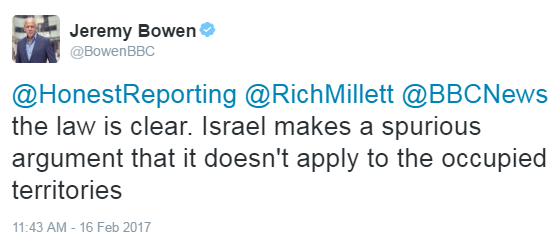
The BBC knows full well that the legal position on this issue is not unanimous. The backgrounder on ‘settlements’ that was first published in late December on the BBC News website states:
“Most of the international community, including the UN and the International Court of Justice, say the settlements are illegal.
The basis for this is the 1949 Fourth Geneva Convention which forbids the transfer by an occupying power of its people into occupied territory.
However, Israel says the Fourth Geneva Convention does not apply de jure to the West Bank because, it says, the territory is not technically occupied.
Israel says it is legally there as a result of a defensive war, and did not take control of the West Bank from a legitimate sovereign power.
It says the legal right of Jewish settlement there as recognised by the 1922 League of Nations Mandate for Palestine was preserved under the UN’s charter. […]
A UN Security Council resolution in December 2016 said settlements had “no legal validity and constitute[d] a flagrant violation under international law”. However, like previous resolutions on Israel, those adopted under Chapter VI of the UN Charter are not legally binding.”
Nevertheless, the man charged with enhancing BBC audience comprehension of ‘complex stories’ and providing information which would throw light on context that is ‘disputed’ obviously prefers to reduce this particular one to facile black and white.
This example raises an additional issue too. When the BBC covers stories concerning disputed territory in places such as Cyprus or in Western Sahara it does not find it necessary or appropriate to provide its audiences with an opinion on what is legal or illegal. The difference of course is that the BBC has not adopted a campaigning role in relation to those locations.

